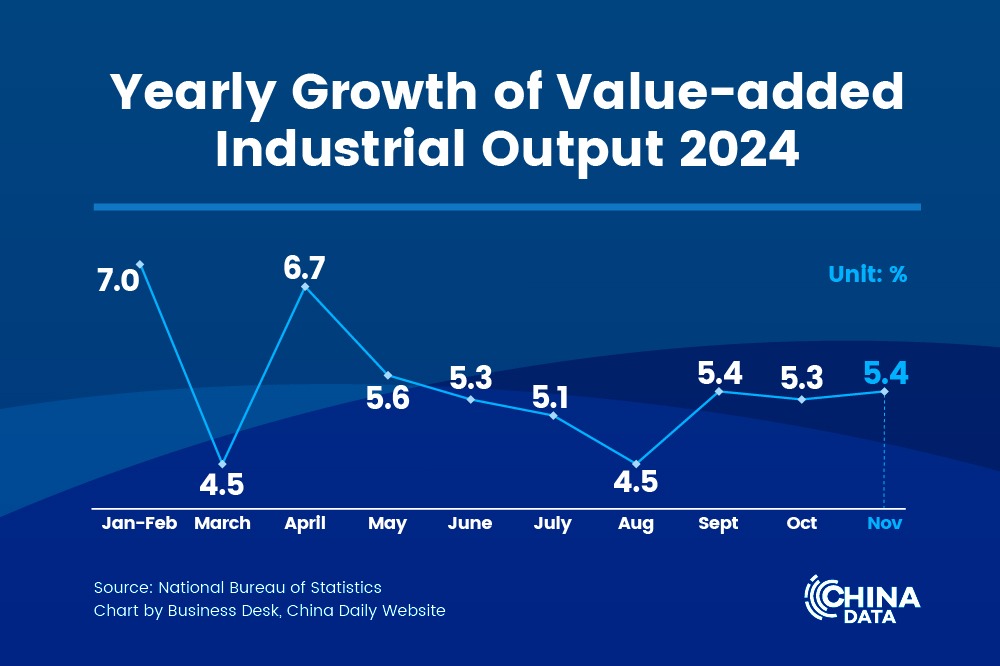Specialists stress global AI governance body


Heightened efforts are needed to give full play to the role of artificial intelligence to empower high-quality economic development and ensure the safe and reliable application of smart technology through global governance, said officials, experts and business leaders at the 2024 Zhongguancun Forum, which ended on Monday in Beijing.
Long Teng, vice-minister of science and technology, said the global AI sector has witnessed explosive growth, with major scientific and technological achievements continuing to emerge and spur social and economic development.
Long said China should firmly seize important opportunities to develop AI, strengthen AI security governance, expand international exchanges and cooperation in AI, and promote intelligent upgrading of industries and disruptive innovation to foster new models and new growth drivers.
The Zhongguancun AI Industry Alliance — which consists of leading universities like Tsinghua University and Peking University, research institutes along with tech giants like Baidu Inc and Tencent Holdings Ltd — was established during the forum.
The alliance will make efforts to bolster breakthroughs in key tech frontiers such as algorithms, data and chips, promote the use of AI in a wider range of applications, and jointly build an AI innovative ecosystem.
Wang Haifeng, chief technology officer of Chinese tech heavyweight Baidu, said the AI agent is an important development direction for large language models and will bring about more industrial applications. An AI agent refers to a computer program or system that is designed to perceive its environment, make decisions and take actions to achieve a specific goal or sets of goals. It also uses the results to formulate the next action that should be taken.
Wang said the company's LLM and ChatGPT-like chatbot Ernie Bot has amassed more than 200 million users since it received approval from authorities to open its LLM to the public in August.
The LLM's application programming interface is being used 200 million times each day. Furthermore, more than 85,000 enterprise clients have used its enterprise-level LLM platform to create 190,000 AI applications.
He Zhengyu, CTO of Chinese financial technology company Ant Group, said the deployment of LLMs not only faces challenges in terms of security and reliability, but also in computing power and operational costs. He emphasized the significance of leveraging LLMs to promote industrial upgrade and transformation.
There is surging demand for intelligent computing power amid the explosive development of generative AI technology, said He, adding that issues related to low utilization rates for smart computing hardware and excessive energy consumption are also challenges.
Official data showed that the number of China's self-developed LLMs ranks second in the world, and over 100 LLMs with more than 1 billion parameters each have been launched in the country.
Although AI brings new development opportunities, challenges remain, experts said.
Zeng Yi, a researcher of the Institute of Automation, which is part of the Chinese Academy of Sciences, said the management and governance of risks brought by AI is becoming increasingly important.
The responsible and appropriate use of AI and driving its steady development will allow this technology to be beneficial to all humans, Zeng said.
He called for efforts to strengthen international cooperation in promoting sustainable development of AI, and establish a global AI development and governance institution under the framework of the United Nations.




































